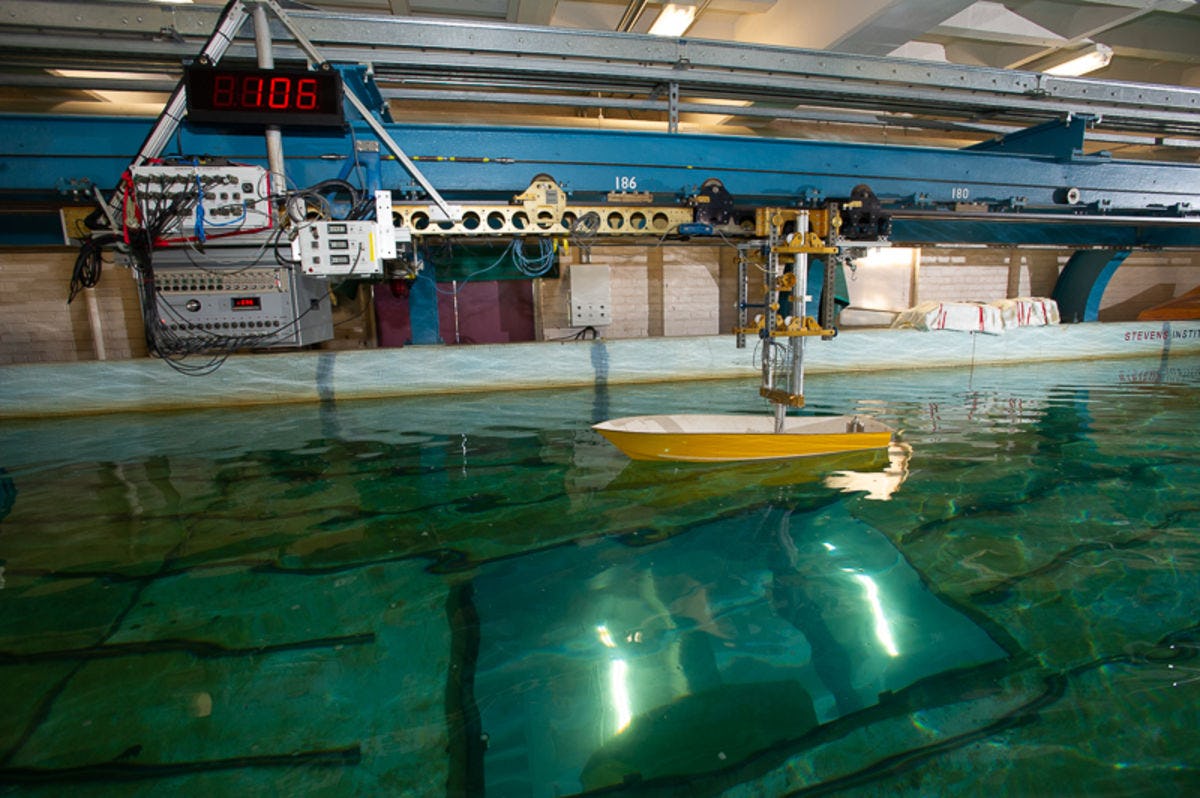Ocean Engineering
Ocean, coastal, naval and marine engineers concentrate on problems associated with our use of oceans and coastal areas such as maritime transport, energy generation, fisheries, recreation and waste management.
Ocean Engineering at Stevens
Ocean Engineering at Stevens offers comprehensive education related to design and evaluation of marine systems (ships, underwater vehicles, wave energy converters, etc.) and development, maintenance and protection of coastal areas (sustainable use of ocean resources, impact of climate change and sea level rise, and prediction and recovery from coastal flooding). According to Bankrate.com, naval architecture and marine engineering was identified in 2019 as the most valuable among 162 college majors.
Broad-Based Curriculum
The undergraduate and graduate degree programs in ocean engineering leverage a broad range of courses in ocean engineering as well as several research facilities and laboratories.
Real World Experience
At Stevens, our professors prepare you to design, build, operate and maintain ships and other waterborne vessels and oceanographic technology through hands-on design projects and co-op experience. Studying in the heart of the New York City metropolitan area, you are afforded the opportunity to work with a living laboratory in the New York harbor and New Jersey coast, and the Davidson Laboratory offers a state-of-the-art facility for research. Collaborations with government and private companies in design and testing ensure that you'll receive the technical knowledge and practical experience necessary to thrive in the professional world.
Related Degrees
Careers in Ocean Engineering
An ocean engineering career incorporates design, management and leadership, and offers excellent opportunities for advancement. A degree from Stevens is applicable to a wide range of careers involving ocean and atmospheric modeling, sediment transport, green infrastructure design, environmental fluid mechanics, estuarine and coastal ocean modeling, motion of vessels in waves, underwater acoustics, renewable energy and urban and coastal resilience.
Some common ocean engineering career tracks include:
Coastal Engineer
Maritime Security Expert
Naval Architect
Coastal Scientist
Physical Oceanographer
Shoreline Restoration Specialist
Dredging Engineer
Ocean/Marine Engineering
Underwater Systems Engineer
Petroleum Engineer
Marine Field Engineer
Top coastal engineering hiring firms: National Oceanic and Atmospheric Administration (NOAA), U.S. Army Corps of Engineers, HDR, Mott MacDonald, COWI, FEMA
Top naval engineering hiring firms: Naval Surface Warfare Center, American Bureau of Shipping, Gibbs & Cox, Lockheed Martin, Navatek, General Dynamics Electric Boat
